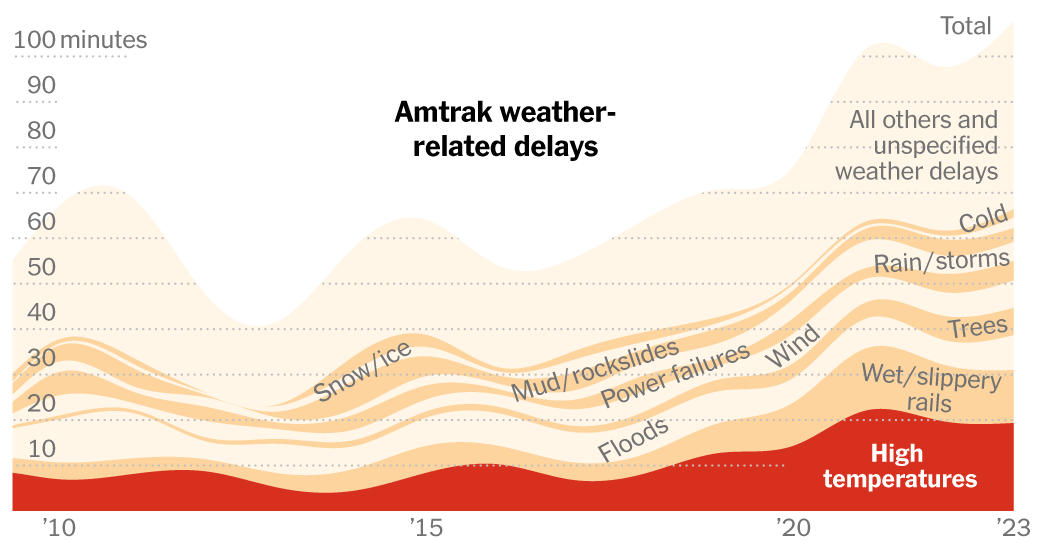Amtrak Passengers Face Record Delays From Extreme Weather

On June 20, after millions of Americans had suffered through a sweltering heat wave for three days, Amtrak sent an ominous warning over social media: Trains connecting the largest cities in Northeast could face up to an hour of delay from high temperatures.
Later that afternoon, after the temperature peaked at 96 degrees in Newark, Amtrak lost electricity near the New Jersey side of the Hudson River tunnels. The power failure soon shuttered a 150-mile stretch of the busiest rail corridor in the United States for more than three hours. The impact reverberated until the next day, when trains chugged through with hours of residual delays.
As the planet rapidly warms, train delays and breakdowns are becoming more frequent as America’s antiquated rail infrastructure struggles to remain functional during prolonged extreme weather events that were not typical when the system was constructed.
A New York Times analysis of Amtrak data found that the rail service’s passengers have faced record delays in recent years caused by inclement weather such as heat waves, storms, floods, high winds, low temperatures, tornadoes, lightning and wildfires.
Extreme weather events bogged down Amtrak trains for more than 4,010 hours in the 2023 fiscal year, which began in October 2022 and ended in September 2023, according to a Times analysis of more than 313,000 individual train delay data dating to September 2003. That was the highest number of weather-related delays in at least 20 years.

Passengers waiting at Penn Station in New York after a brush fire along the Northeast Corridor caused delays in June.Credit…Dakota Santiago for The New York Times